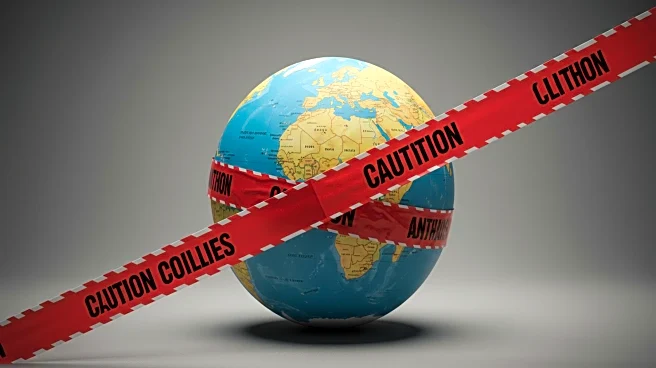What's Happening?
Several countries have temporarily stopped sending mail to the United States due to confusion over new tariff policies implemented by the Trump administration. The de minimis exemption, which previously allowed packages valued at up to $800 to enter the US duty-free, has been reduced to $100. This change has led to uncertainty about how tariffs will be collected and how countries should submit information to US authorities. As a result, postal services in countries like Korea, Singapore, Austria, Norway, Finland, Belgium, Germany, and the Czech Republic have suspended shipments to the US.
Why It's Important?
The suspension of international mail services to the US highlights the broader impact of tariff policies on global trade and logistics. This disruption affects businesses and consumers who rely on international shipping for goods and services. The reduction in the de minimis threshold disproportionately impacts low-income Americans, as it increases tariffs on goods entering poorer ZIP codes. The National Bureau of Economic Research estimates that this policy change could reduce consumer welfare by up to $13 billion annually, exacerbating economic inequality.
What's Next?
The Trump administration may face pressure to clarify and adjust its tariff policies to restore confidence among international postal services and trading partners. Countries affected by the suspension are likely to seek negotiations to resolve the confusion and resume normal shipping operations. Businesses and consumers will need to adapt to potential delays and increased costs associated with international shipments until a resolution is reached.











